On Campus blog: Daily news updates from the tertiary education sector
Former deputy PM Mark Vaile will be the next chancellor of the University of Newcastle.
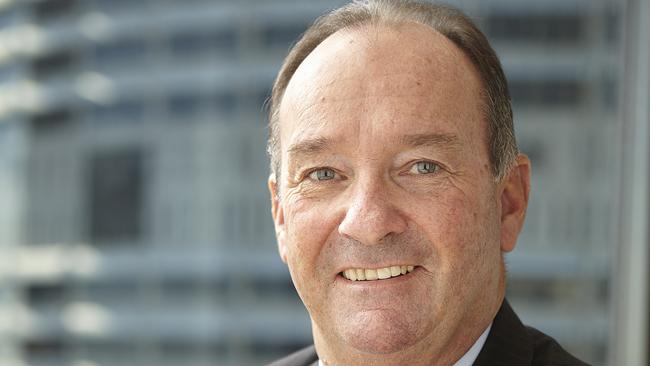
Friday 4 June
–
Mark Vaile to be Newcastle’s next chancellor
Former deputy prime minister and National Party leader Mark Vaile will become the University of Newcastle’s next chancellor from July 1, succeeding Paul Jeans, who is retiring after eight years.
Deputy chancellor Michelle McPherson said Mr Vaile’s “experience with our international partners right through to our local communities will be invaluable for our future both in our regions and on the world stage and our full council looks forward to working with him.
Vice-chancellor Alex Zelinsky said he looked forward to working with Mr Vaile and the university council to build on Newcastle’s outstanding achievements.
“We’ve graduated more than 150,000 students over the years and we are among our region’s largest employers, so we know the person at the head of our governing body takes on a heavy but important responsibility,” Professor Zelinsky said.
Mr Vaile was the Nationals leader and deputy prime minister from 2005 to 2007 and since leaving parliament in 2008 has served on boards including Servcorp, StamfordLand, HostPlus and Virgin Australia.
“I look forward … to working with council and Vice-Chancellor Zelinsky as we face the challenges and embrace the significant opportunities ahead of us,” Mr Vaile said.
–
Western Sydney Uni gives defence personnel a new pathway
Western Sydney University has partnered with defence support organisation Soldier On to encourage enrolments under its new Student Veterans Program, and as a first step may award applicants five bonus entry points in recognition of their prior learning and attributes.
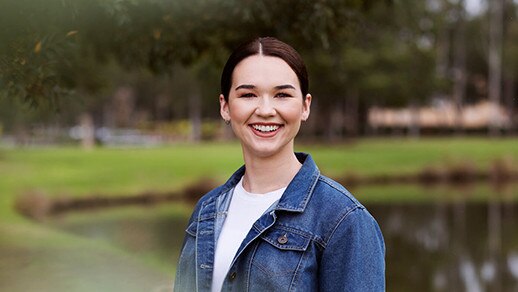
Current and previously serving Australian Defence Force and Reservist personnel who gain entry will have access to special benefits including individual support from a student veteran support officer, priority timetabling, special consideration, subsidised health clinic services and free welfare and counselling services.
Student veteran support officer and medical student Keesha von Stieglitz, who served in the Royal Australian Air Force, helped establish the program.
“Defence force personnel make a range of sacrifices for the country; therefore, it is important to ensure we are offering support to [them] in any capacity that we can,” Ms von Stieglitz said.
“Having a program that allows veterans to adapt their studies to align with their service requirements is crucial in fostering a positive study environment.”
-
Thursday 3 June
–
Coalition is ‘systemically trashing’ higher education: Plibersek
Labor education spokeswoman Tanya Plibersek told the Universities Australia conference that the Morrison government was “systemically trashing higher education in Australia”.
“That’s what it’s telling you with its attitude and its legislation and its budgets,” she said.
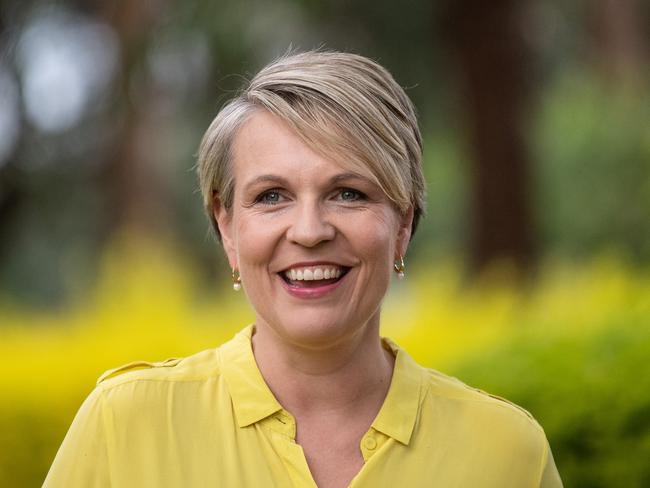
Ms Plibersek said Labor was committed to working with universities to solving the shortage of Commonwealth-funded university places.
She said Labor’s $15bn National Reconstruction Fund could help translate university discoveries and inventions into new Australian businesses and jobs.
Half of Australia’s early career researchers had thought about moving overseas, she said, and plenty had already made that decision.
“When we watch these people leave our country, we’re watching economic opportunities fly off,” she said.
–
Shortage of graduates looms
Monash University vice-chancellor Margaret Gardner says the Morrison government must open global borders faster or provide more student places to young Australians to solve post-pandemic labor shortages.
Speaking to the Universities Australia conference on Thursday via videolink, Professor Gardner said universities will be pumping out far fewer graduates post-Covid.
We are going to produce fewer graduates, (fewer) entering the workforce, and this can only be dealt with in a small number of ways,” she said.
“Faster opening of borders to international students; increased significantly in domestic places or changes in our base arrangements and migration settings for people that we graduated elsewhere, or people who want to come to Australia.”
–
Connection and reflection essential for Indigenous student success
Indigenous university students need a sense of connection and community with campus and with each other, and to see Indigenous people in the institution’s executive, according to UA conference panel discussion on strategies for student success.
“Coming out of 2020, our students were overwhelmingly saying ‘we missed that sense of community the most on campus’,” Melbourne Institute for Indigenous Development’s Murrup Barak director, Inala Cooper said.
“So we know that the more we can strengthen that sense of community on campus, the stronger all of our students will feel, which, of course, will lead to better wellbeing and academic success.”
Ms Cooper said students wanted “to see themselves reflected in the leadership of their faculties, their schools and the executive. And they also want more contact with postgraduate students”.
The University of Melbourne now has associate deans (Indigenous) in six faculties. “It’s an exciting change that has emerged over the last year or two. If we discover a student is struggling, whether with their well being or academically, we know that that associate dean is open to us having conversation with them and they may want to reach out and support the student to one, or whatever is appropriate.”
–
Sexual assault an ugly prospect in the return to campus
Action is needed on the student loneliness and poverty highlighted by the Covid-19 crisis and on the potential for sexual assault as students return to campus, National Union of Students president Zoe Ranganathan has told the UA conference.
“We need to be looking at the welfare system and how universities can assist in pushing students’ issues and agendas towards government,” Ms Ranganathan said.
The NUS, which represents more than a million students in the higher education sector, believed there was a “crisis in terms of student safety on campus regarding sexual violence and particularly with the return to campus after such a long time of being away”.
“I fear that there aren’t enough adequate frameworks to make sure that students — not only students who have been on campus before, but students who have never been on campus — feel adequately safe.”
–
Build a resilient understanding of managing students
University leaders had multiple layers of responsibility, not just to the institution’s workforce, but as custodians of the thousands of students in their care, National Mental Health Commission chief executive officer Christine Morgan has told the UA conference.
The question was: “How do I as a custodian or as a leader, ensure that I am doing everything I can to bring out the full potential of the person I’m leading?” Ms Morgan said.
“That is a way of looking at leadership that I think is really starting to gain traction. And I think as a university [leader], it’s recognising the uniqueness of the asset you protect, that you nurture, that you will effectively unlock for all of Australia, which is that concept of knowledge, the ability of individual minds to create new knowledge.”
She said leaders should also realise the importance “of investing time in connecting with the people in our teams” and needed to act as role models who would invest in their own mental health and wellbeing.
–
Take foreign interference seriously, VC warns
University of Newcastle vice-chancellor Alex Zelinsky has warned fellow university chiefs that the Morrison government will force anti-foreign interference rules on the higher education sector if they do not take national security risks seriously.
Home Affairs and Defence officials at the University Australia conference on Thursday praised the University Foreign Interference Taskforce (UFIT) and the sector’s increased efforts on national security.
But Professor Zelinsky — a former chief defence scientist for the federal government — said on Thursday that universities must do more on foreign interference.
“We have to be serious about it as a sector … we must implement it,” he said.
“We’ve got a sense of that this morning from the minister (Alan Tudge) around the freedom of speech, because when he was talking about legislating … and I think that’s what could happen if we don’t take UFIT guidelines seriously.
“It’s best to be working through self regulation, adhering to standards, rather than having a sledge hammer being imposed on the sector.”
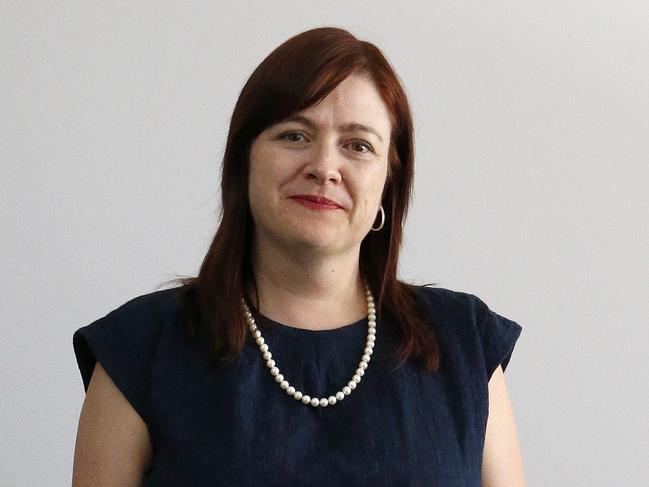
Despite his support for UFIT, Professor Zelinsky attacked the Morrison government’s Foreign Relations Act which gives Foreign Minister Marise Payne a veto over university deals with foreign actors.
“The intent is right but it’s not fit for purpose … it’s just not right for the sector, it is over reach and poorly designed. We need to have a rethink on that,” he said.
Chief Defence Scientist Tanya Munro urged university bosses to take Professor Zelinsky’s comments on UFIT guidelines “to heart”.
Patrick Hallinan, the Department of Home Affairs’s deputy counter-foreign interference co-ordinator, said changes to university guidelines were possible but said “sledgehammer” changes are unlikely.
–
Let’s change the narrative on international students
Australia had a choice between an existing narrative about international students driven by “racism and fear and xenophobia” or creating a new and more positive view, Council of International Students Australia (CISA) national president Belle Lim has told the UA Conference.
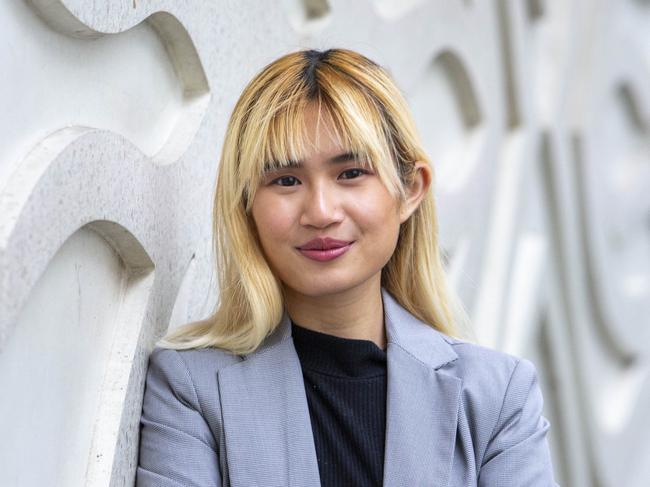
”We can shift the dial to emphasise Australia’s responsibility in educating international students while at the same time strengthening Australia’s national interest and security,” Ms Lim said.
She said the benefits of having international students were not obvious to the community. ”My call for the higher education sector and the Australian government is to … really highlight the social, cultural and skills contribution of international students and the role that Australian universities play in educating and training the future business, the political leaders of the world, and in particular the Asia Pacific region.”
–
Local communities love their unis
Local communities moved closer to their universities during the difficulties of Covid, Deakin University vice-chancellor Iain Martin believes.
Professor Martin who, like about 300 other delegates to today’s Universities Australia conference in Canberra, is trapped in Victoria and participating online said that the importance of universities as “civic anchors” was well recognised.
“We didn’t always feel our mission and role was as understood as well as we’d like in Canberra. But locally I think we’ve had more support than we’ve ever had,” Professor Martin said.
However he did say that Covid had been a mixed bag. While Deakin was able to do even more local interaction through Zoom than it would normally do, we “lost the chance interactions where the great ideas come from”.
–
US-China tension a boon for Australian unis
Australia’s Ambassador to the United States Arthur Sinodinos says the power struggle between Washington and Beijing could provide a boost to Australian university researchers.
Australian universities in the past year have come under fire for their close relations to China and been pushed to combat foreign interference and contribute more to the national interest.
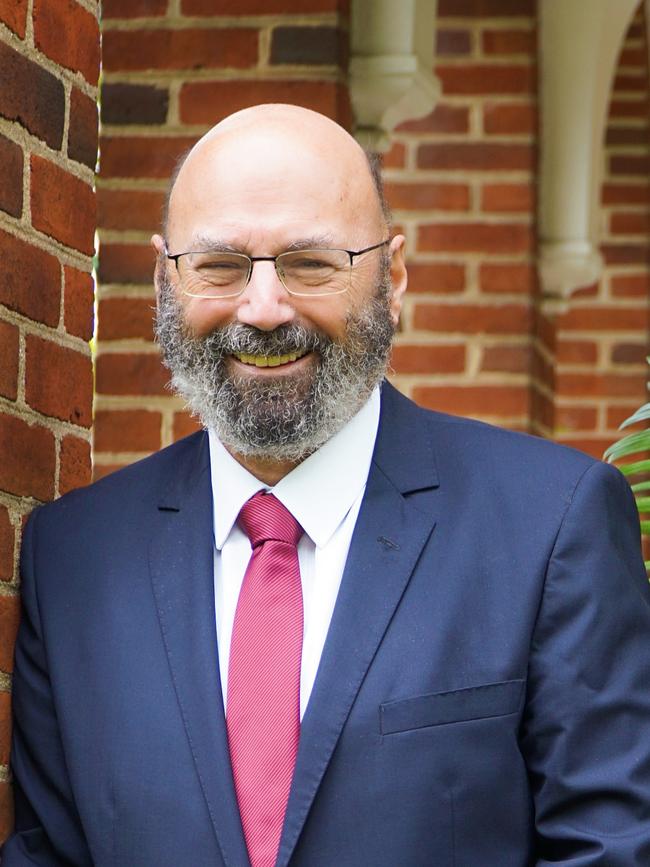
In comments to the Universities Australia conference in Canberra, Mr Sinodinos said the Biden Administration’s focus on the space race and the national security race opened up more university collaborations between the Five Eyes intelligence partners.
“In this new world of prosperity, science, and national security is likely to result in more interesting Five Eyes co-operation in university research,” he said via videolink.
“The US is reviewing its supply chains in many of these areas, and looking at the role that allies and partners can play, and the need for R&D (research and development) capacity to sustain leadership in the development of critical tools and materials.
“There’s so going on that we in Australia can take advantage of.”
–
US universities open up while Australia lags
Ambassador in Washington Arthur Sinodinos also warned universities that Australian students will be attracted to US campuses as they open more quickly.
Education Minister Alan Tudge has told the nation’s universities on Thursday to open up more face-to-face learning and to put the domestic student experience first.
Mr Sinodinos told the Universities Australia conference in Canberra via videolink that American universities are feeling more optimistic about opening up as vaccinations power through, and Australian students will be attracted to those greater freedoms.
“As kids go back at the beginning of the new academic year here (in the United States), I think there’ll be a lot of students in Australia who will look at that as well, and say, that’s a really good thing,” he said via videolink.
“That will set up where more and more parts of the world open up. others who have not opened up more quickly … will have to rethink what to do.”
–
Are specialist unis on the way?
What does Alan Tudge have in mind for the future structure of Australian higher education? He told the UA conference that we “need to start a conversation about how we can support greater differentiation and specialisation in the university sector”.
“We have 39 comprehensive universities, which may not be an optimal model for the quality of teaching or research in this country,” he told the conference.
This clearly opens the way for Australia to follow much of the rest of the world in having universities which specialise and build their reputation in particular areas of teaching and research. It also hints that the government may consider ending the requirement for all universities to do research – allowing teaching only, or teaching focused universities.
Mr Tudge seems to be telling us: watch this space.
–
Tudge wants industry involved in learning
Federal Education Minister Alan Tudge has tapped two former vice-chancellors — RMIT’s Martin Bean and Victoria University’s Peter Dawkins — to carry out a review aimed at finding ways to get industry involved in university teaching and learning at undergraduate level.
Mr Tudge will announced the review in his speech to the 2021 Universities Australia conference on Thursday morning. It’s intended to help ensure that university graduates are work ready.
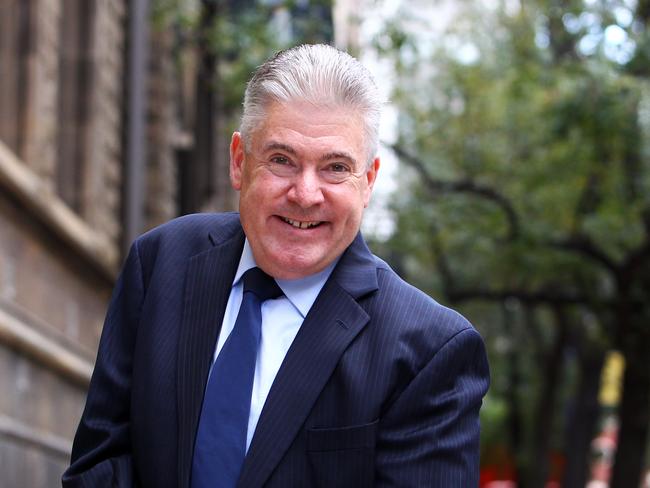
“This review will consider how we can get more students to have industry experience, and potentially count that experience as credit towards their qualification. It will also look at the interaction between the VET and higher ed sectors and how they can interact more seamlessly,” Mr Tudge will tell the conference.
We don’t know how long it will go for, except that the minister describes it as “short”.
–
Wednesday 2 June
–
Uni leader must preside from afar
Universities Australia chair John Dewar is trapped in Melbourne by the Covid lock down, even as his higher education peak body meets in Canberra — starting Wednesday evening — for its first big confab since the pandemic hit 14 months ago.
There’s much to discuss following the estimated $2bn hit to revenue which universities have endured, the huge difficulties in reopening the border to international students, and thousands of lost jobs.
The gathering comes in the wake of last month’s federal budget which, for the first time in living memory, had absolutely zero new money for public sector universities. First up on Thursday’s agenda is Education Minister Alan Tudge, and no one is expecting any joy from him.
Professor Dewar, the La Trobe University vice-chancellor who was recently appointed UA chair for a two-year term, will not be present at the Canberra Convention Centre for the conference.
He will preside over proceedings from afar. But he’s not alone, as about a quarter of the delegates who had planned to be there in person are also stuck in Victoria.
–
Coming up
2021 Universities Australia Higher Education Conference(June 2-3). National Convention Centre, Canberra, and online
An authoritative line up of experts from Australia and overseas will assess the impact of seismic global change on universities and economies and what’s needed to achieve a healthy recovery.
2021 Skills Conference (16 June). Dockside Darling Harbour, Sydney
2021 will be a critical year for the long term viability of VET. The Skills Conference will look at the recovery strategies being put in place to establish the next generation of nation builders.
ITECA National Skills Summit (June 25). Hilton, Sydney
A series of panel discussions led by industry stakeholders, skills sector opinion leaders and students will consider the strengths of Australia’s skills sector focusing on where improvements can be made to ensure students get the training and skills that employers require.
Community Colleges Australia National 2021 Adult and Community Education (ACE) Summit(June 29). The Mint, Sydney, and online
A showcase for ACE providers’ innovative programs and pathways that can help governments succeed in meeting Australia’s economic, employment and social challenges in the wake of the pandemic-induced economic downturn.
–
Tuesday 1 June
–
Curtin’s new humanities chief to foster research, collaboration, creativity
Curtin University has appointed Richard Blythe as the new pro vice-chancellor of the humanities faculty, succeeding Alan Dench, who has retired after five years in the role. Professor Blythe, an Australian architect, is currently dean of the College of Architecture and Urban Studies at Virginia Tech in the US, a position he has held since 2017. Prior to that he was dean of architecture and design at RMIT University. “For more than a decade, Richard has excelled in leadership roles at Virginia Tech in the US and RMIT, where he focused on strategies to integrate practice, deliver high-quality teaching and build very successful external collaborations,” Curtin vice-chancellor Harlene Hayne said.
Professor Blythe, who will join the university later in the year, said he would focus on fostering research, collaboration and creativity.
“Humanities research and study has never been more important, as people around the world look for new ways to connect and create in the climate of Covid-19, and at a time of unprecedented political, economic and climate challenges,” he said.
“Curtin University is very well placed as a leading global institution with a reputation for future-focused, hands-on, creative and industry-aligned teaching, learning and research.”
–
Forrests award early career fellowships to young scientists
The latest early career researchers awarded Forrest Research Foundation Prospect Fellowships will investigate areas as diverse as fish vision, the potential of infra-red remote sensing technology to prevent bushfire spread and mental health.
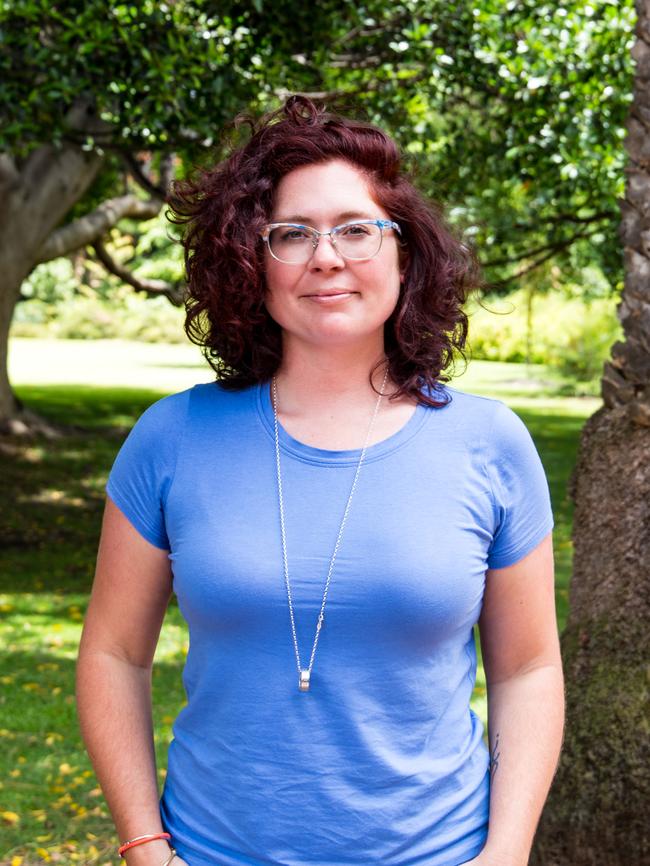
Of the eight scientists, seven will conduct their work at the University of Western Australia, the other will be at Curtin University.
India Dilkes-Hall from the UWA Centre for Rock Art Research and Management will investigate what insights plants, tropical rainforests, archaeology and climate change offer into human evolution; Kieran Mulroney from UWA’s Translational Renal Research Group will work on developing faster and more accurate pathology tests for life-threatening infections; and Arnold van Rooijen from UWA’s Oceans Graduate School will study new methods of mitigating coastal flooding — such as seagrass meadows and coral reefs.
–
CQUniversity to educate Jakarta civil servants
Scores of senior Indonesian government officials will enrol in CQUniversity’s MBA program after the university signed an agreement with the country’s Ministry of National Development and Planning.
Vice-chancellor Nick Klomp, said he was looking forward to the first cohort of civil servants beginning their studies for the MBA degree, which specialises in public-private partnerships and data science.
“The delivery of this MBA program will ensure that top government officials are attuned to the most cutting-edge theory and practice in PPPs and data analytics, delivered by our foremost experts on these topics,” Professor Klomp said.
The MBA will be delivered in partnership with local institution Universitas Bakrie at CQUniversity’s Jakarta executive education centre, starting in March 2022.
CQUniversity is now negotiating with other government agencies, corporations and banks in Indonesia to expand its education offerings in the country.
Monday 31 May
–
Bond enrols record number of Indigenous students
Bond University has marked National Reconciliation Week by announcing it has enrolled 76 Indigenous students this semester, the largest the university has ever had in its 32-year history.
Provost Keitha Dunstan said 16 of the students were on scholarships — thanks to the generosity of university partners — and were spread across a range of degrees including medicine, film and television, architecture, law and entrepreneurial transformation.
Professor Dunstan said Bond University was proud of its 91 per cent success rate for Indigenous students, compared to a sector average of 71 per cent.
The university has awarded 97 scholarships to Indigenous students since 2012 worth about $5m. Indigenous students are able to use the university’s Nyombil Indigenous Support Centre, which offers a culturally safe and supportive learning environment for Aboriginal and Torres Strait Islander students.
–
Ziggy Switkowski to advise government on research
RMIT University chancellor and NBN Co chair, Ziggy Switkowski, will chair the expert working group that will lead development of the new research infrastructure road map over the next five to 10 years.
The federal government will invest $4 billion in the years to 2028-29 and the road map will focus on research commercialisation efforts as well as setting strategy.
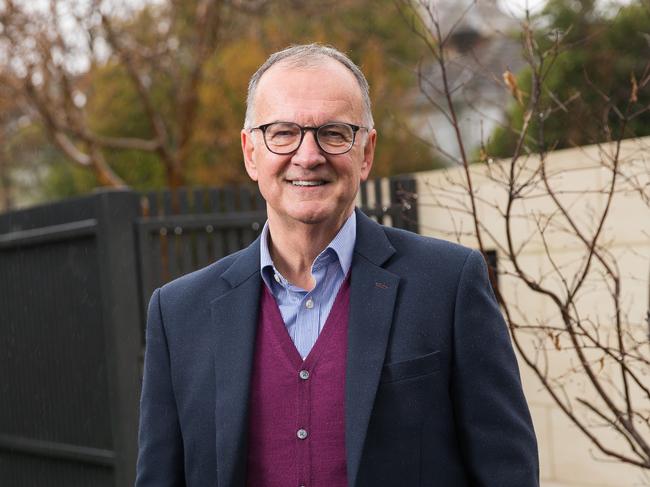
“The world has changed significantly since the 2016 Road map and our national research infrastructure has played a vital role in supporting Australia’s recovery from events like bushfires and the Covid-19 pandemic,” Education Minister Alan Tudge said.
The National Collaborative Research Infrastructure Strategy facilities currently employ 1400 highly skilled technical staff and support 65,000 industry, higher education and government researchers,
The new expert working group for research infrastructure chaired by Dr Zwitkowski includes the University of Melbourne’s Liz Sonenberg and Barbara Howlett, former Cochlear CEO Chris Roberts, artificial intelligence healthcare company Presagen CEO Michelle Perugini, and Woodside innovation partnerships manager Lauren Stafford (will confirm) with ex-officio members including chief scientist Cathy Foley.
–
JCU’s Peter Leggat to lead global group
James Cook University’s Professor Peter Leggat will become president of the International Society of Travel Medicine (ISTM), the first Australian to take on the role.
ISTM promotes excellence among doctors, nurses and pharmacists working in travel medicine and migrant health worldwide as well as working with related international organisations such as the World Health Organisation and the US Centres for Disease Control and Prevention.
JCU has been conducting postgraduate tropical and travel medicine training for doctors, nurses and pharmacists since 1992, including Australia’s first postgraduate course in travel medicine established in 2000.
Professor Leggat said ISTM, of which he is a founding member, has thousands of members from more than 100 countries. “We also have the largest certification examination program in the field, which leads to the award of the ISTM Certificate of Travel Medicine.”



To join the conversation, please log in. Don't have an account? Register
Join the conversation, you are commenting as Logout